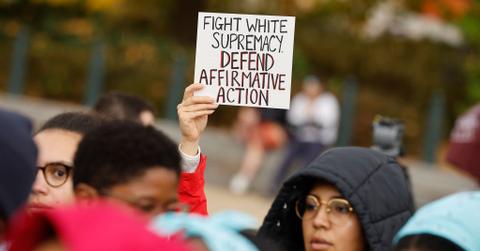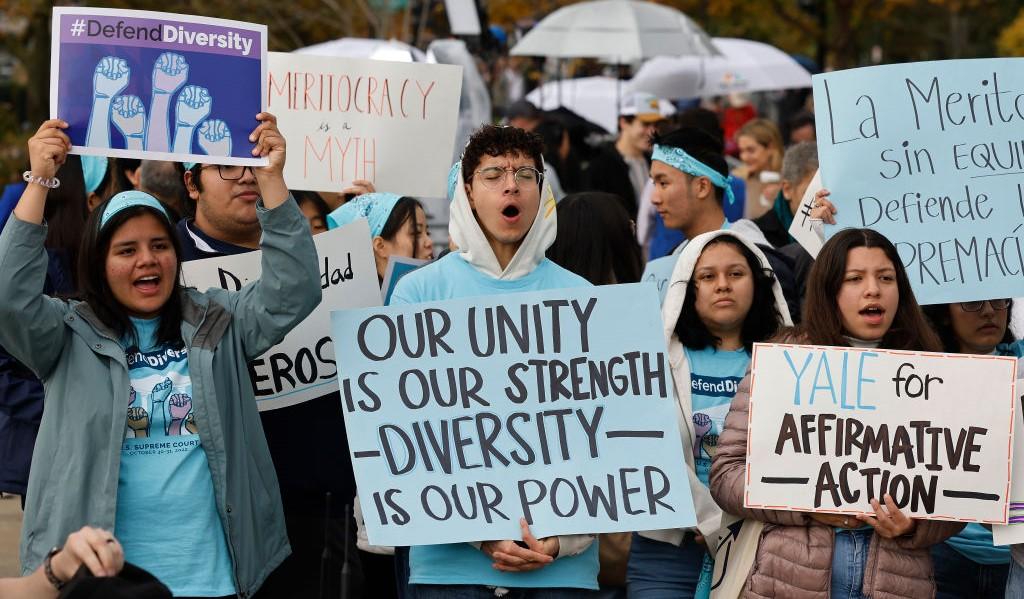The Supreme Court Might Ban Affirmative Action — Here's What Could Happen
The Supreme Court is trying two cases related to affirmative action. Here’s what could happen if the High Court bans affirmative action.
Oct. 31 2022, Published 2:13 p.m. ET
The Supreme Court is taking on two cases related to affirmative action, and the outcome could shift the fate of race-conscious admissions in higher education. Much like the overturn of Roe v. Wade, having a conservative majority in the Supreme Court could make cases fighting affirmative action turn out differently than they have in the past.
Here are the details on the cases the Supreme Court is trying, plus what could happen to universities and other institutions if affirmative action becomes yet another norm of yesteryear.
The Supreme Court could ban affirmative action — here's how.
Affirmative action legislation has led to race-conscious admissions becoming the norm at most universities. This week, the high court is hearing two cases from people disputing affirmative action, one at University of North Carolina (UNC) and the other at Harvard.
Edward Blum, head of anti-affirmative action group Fair Admissions, told reporters, “What is happening on college campuses today is that applicants are treated differently because of their race and ethnicity.” Blum added, “The Constitution and our civil rights laws forbid the consideration of race in higher education.”
An affirmative action reversal could eliminate race-conscious admissions in higher education.
Lee Bollinger and Geoffrey Stone are co-authors of A Legacy of Discrimination: The Essential Constitutionality of Affirmative Action. Bollinger is also a former University of Michigan president and a defendant in a similar case in 2003, then with a Supreme Court that decided in favor of affirmative action. In a piece for The Atlantic, Bollinger and Stone wrote, “It is impossible to argue that Black Americans enjoy equality of opportunity. They do not. Affirmative action must continue, potentially for generations to come — because the invidious discrimination experienced by Black Americans over a three-century span has not been undone.”
While some may argue that equality has been reached and affirmative action does more harm than good, that ignores the harsh reality of prolonged inequity, including gaps in wealth, education, and other opportunities. It also ignores the reality that is the school-to-prison pipeline, which disproportionately impacts students of color.
Who will the Supreme Court side with?
As Craig Steven Wilder wrote in Ebony and Ivy: Race, Slavery, and the Troubled History of America’s Universities, “In the decades before the American Revolution, merchants and planters became not just the benefactors of colonial society but its new masters. Slaveholders became college presidents. The wealth of the traders determined the locations and decided the fates of colonial schools. Profits from the sale and purchase of human beings paid for campuses and swelled college trusts. And the politics of the campus conformed to the presence and demands of slave-holding students as colleges aggressively cultivated a social environment attractive to the sons of wealthy families.”
Despite the history that precedes it, affirmative action is at real risk. The largely Trump-appointed Supreme Court is more conservative than ever. Plus, without Justice Ketanji Brown Jackson, who removed herself from the Harvard trial since she previously served on a board for the school, that skew is even more prominent.


